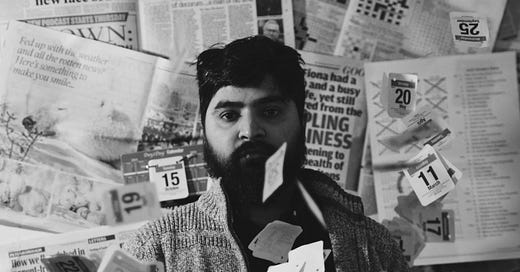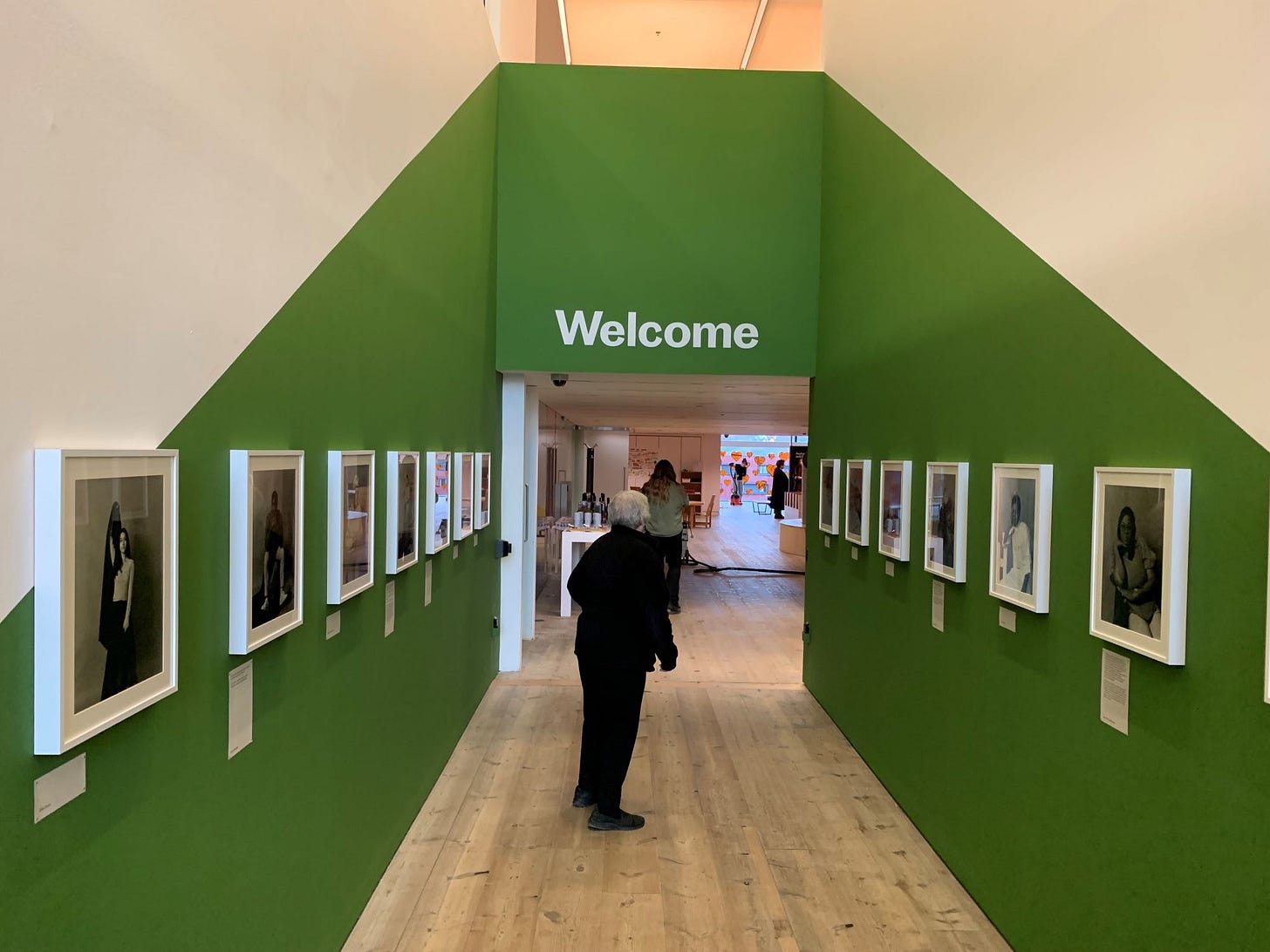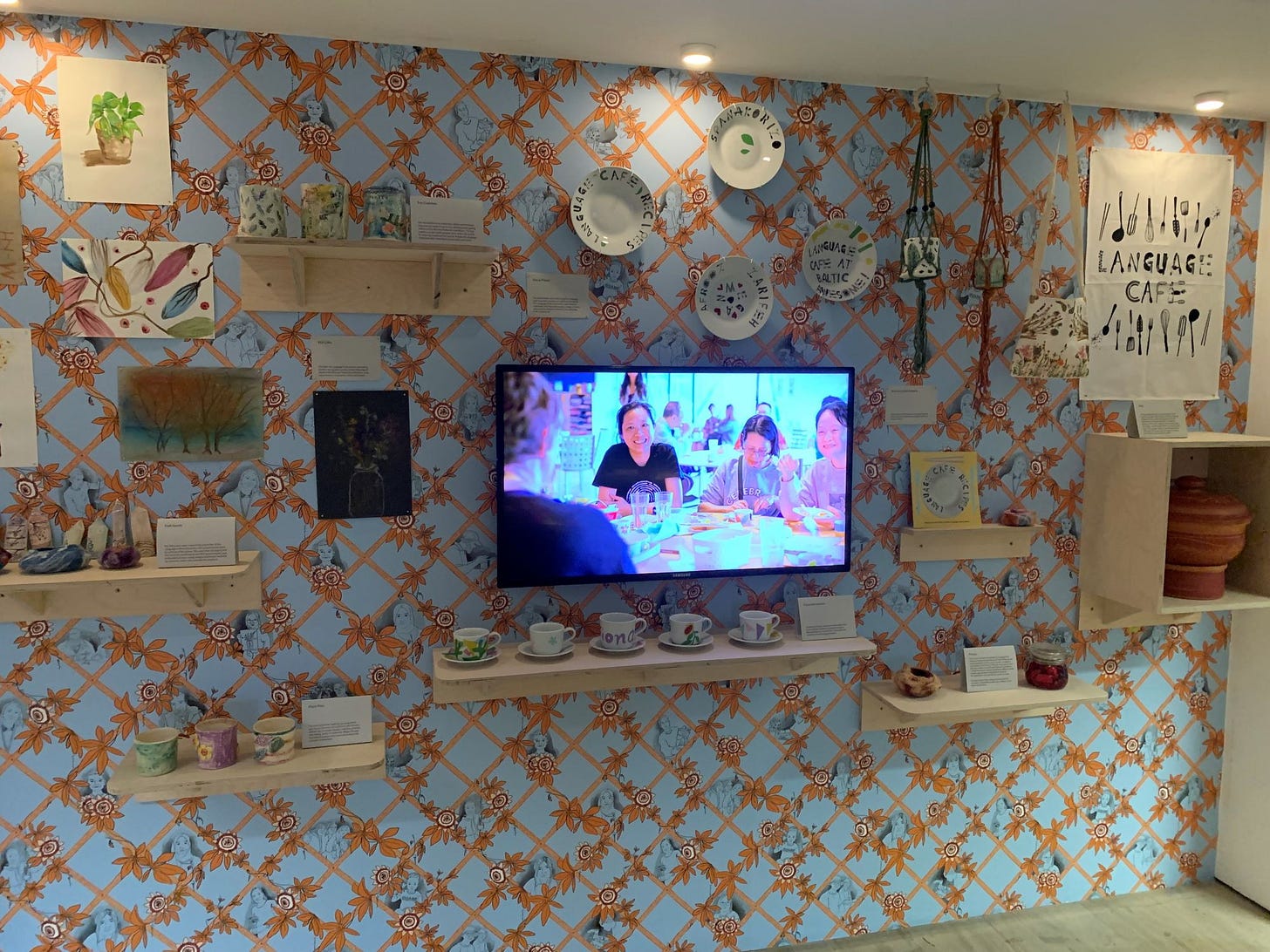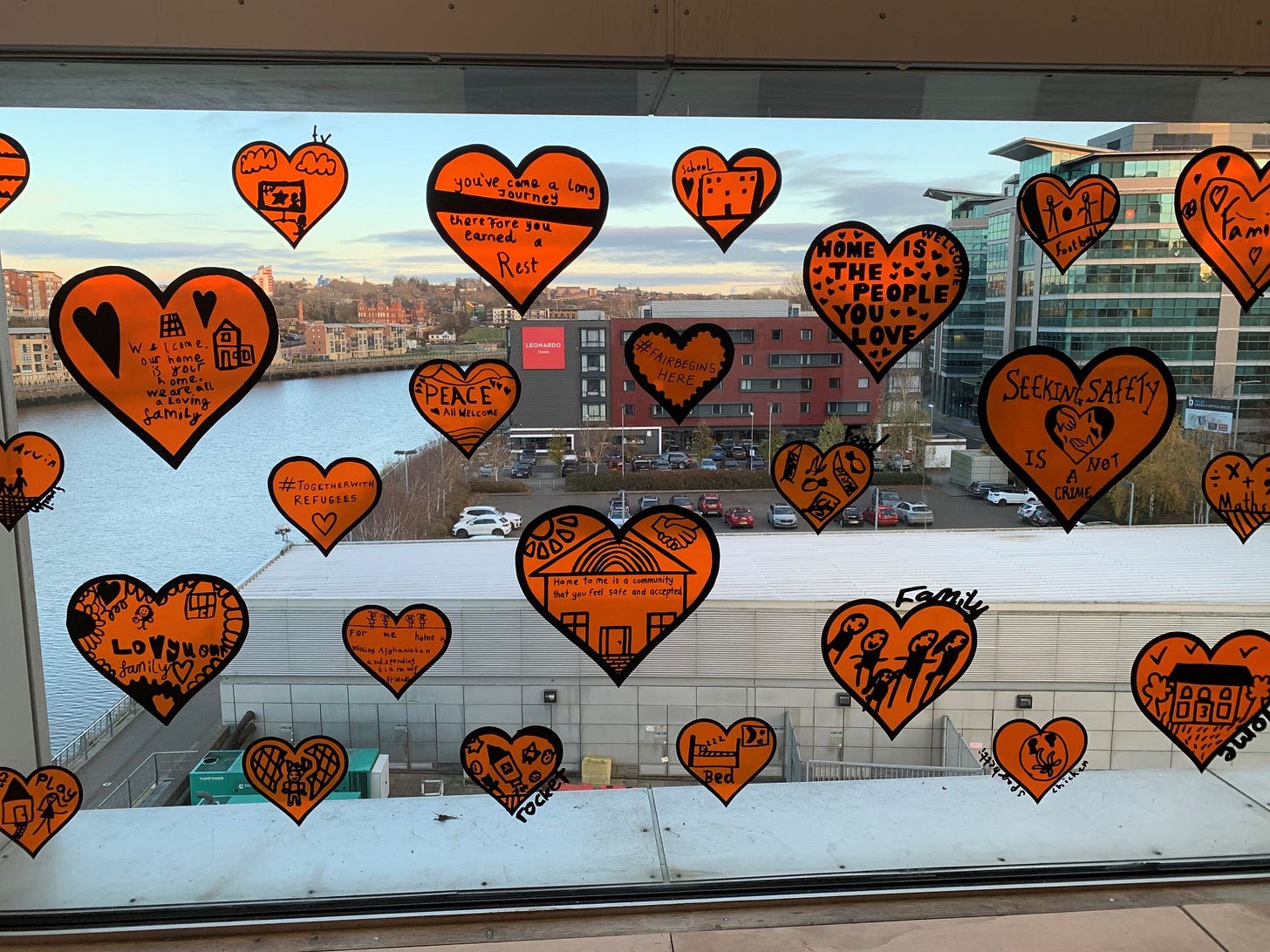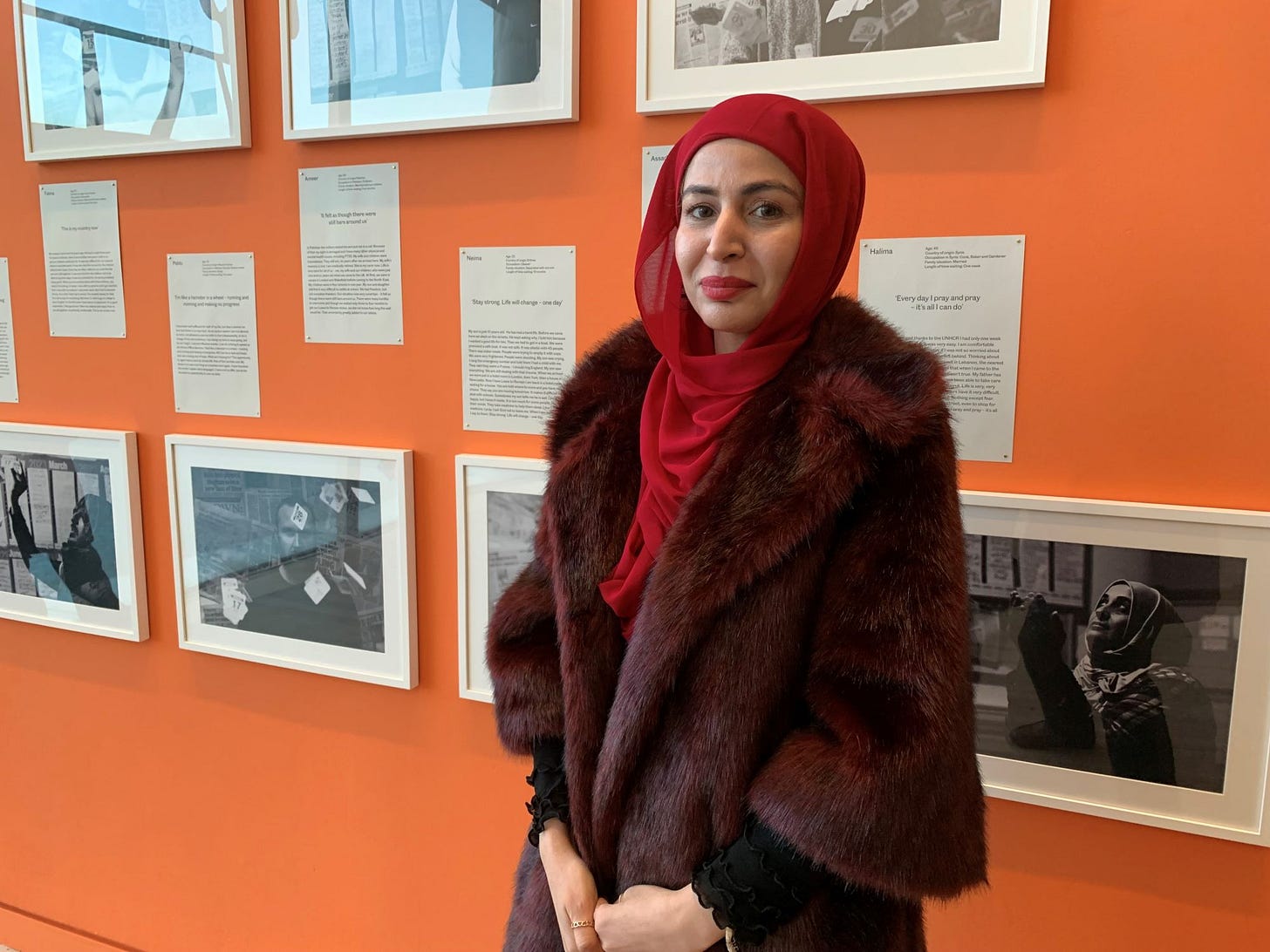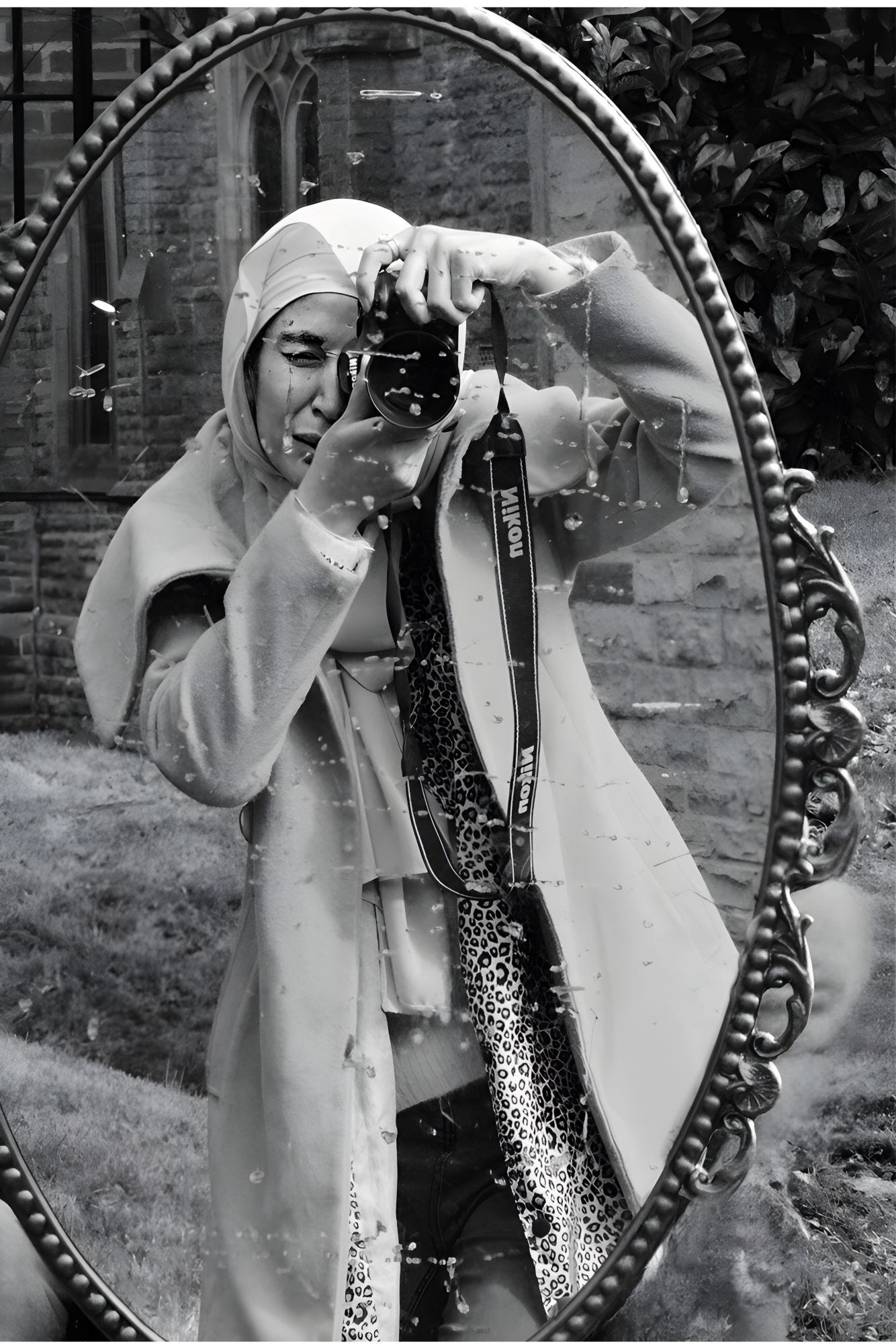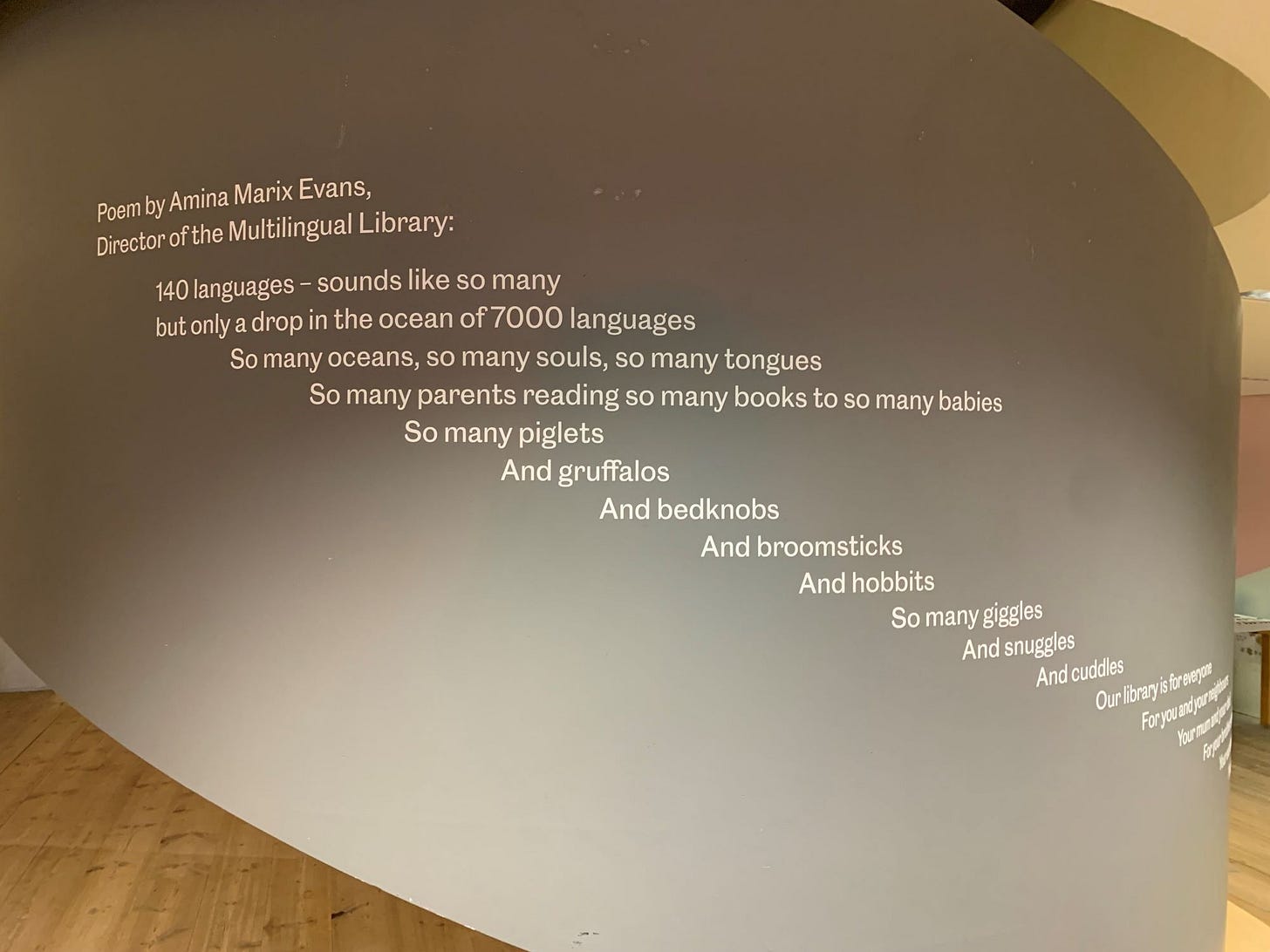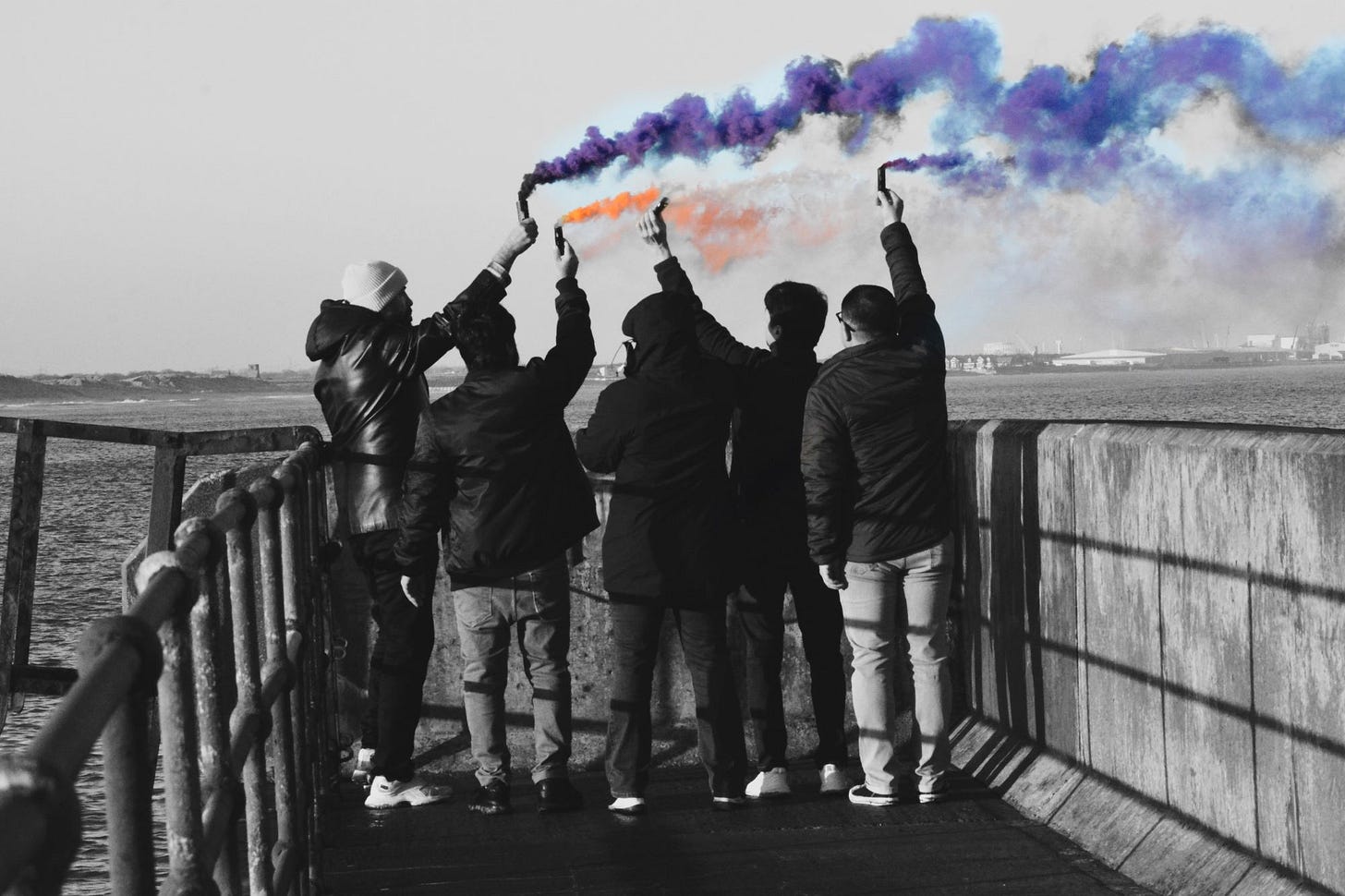Exhibition: We All Came Here From Somewhere
A new exhibition at Baltic both extends a welcome and takes a swipe at the asylum system, as David Whetstone reports
The sign above the entrance catches the spirit of the new Level 2 exhibition at Baltic. ‘Welcome’, it says, in bold letters painted white on green.
The exhibition title itself, taken from The Refugees, a poem by the late Benjamin Zephaniah, is wordier but no less clear in its meaning.
We All Came Here From Somewhere is an expression of Baltic’s status – since 2022 – as a Gallery of Sanctuary, a place committed to welcoming newcomers and particularly asylum seekers and refugees.
By way of introduction, in the corridor beneath the white-on-green sign, are black and white portraits by Kuba Ryniewicz, a North East-based photographer well known in the fashion world.
Balenciaga, Gucci, Loewe and Stella McCartney feature on an impressive list of past clients and while his subjects this time might not be household names, they’re among the stars in this context.
“They’re all photographs of the people who help to create a welcoming space at Baltic,” explained Annie Bedford, communities producer in Baltic’s learning team.
“They include volunteers in our language café and people who do catering.
“Margaret’s a regular at our sewing bees and a volunteer with us. Miriam’s a cleaner but is at our language café event every month, knows everyone and is part of that community.
“This is about trying to give visibility to the people, the food and the languages that create welcoming spaces at Baltic.”
Many casual Baltic visitors, drawn by the art or the shop, might not be aware of the sanctuary status it takes so seriously.
“We hold a language café on the first Saturday of every month and it’s grown from six to eight regular attenders to more like 80 to 100,” said Annie.
“They meet in our Front Room and there are hot meals, artists-in-residence and about 15 languages spoken. It’s a thriving community.”
Many of the objects on display in the room beyond that big sign were contributed by language café regulars and are treasured reminders of home.
“It’s meant to feel quite domestic,” said Annie.
“The wallpaper was inspired by the different individuals from the language café and they’re our VIPs.
“It was designed by Foundation Press, who have a studio here, and it reflects the objects and the stories around them.”
At the other end of the room is another display of photographs, this time by Sadia Sikandar who came here as an asylum seeker from Pakistan in 2018 and knows there’s no easy assimilation into British life.
She worked with members of Walking With, a Wallsend-based charity that works with refugees and asylum seekers, eliciting the personal stories that shed light on the struggles they’ve faced.
“The question was what we could do to help people understand what the asylum system is all about and the contribution asylum seekers make to our communities,” said Sadia.
She was keen to stress the positives which are easily overlooked in any heated debate about immigration.
“Every person has skills,” she said.
“The main purpose of this exhibition is to highlight that. Asylum seekers being forbidden to work creates a hurdle in their lives and is a burden on the economy also.”
Sadia studied fine art at the University of the Punjab and was exhibiting widely until things started to go wrong.
“In my home country I had a job, a car and a home, but I lacked freedom and peace of mind,” she said.
“My life was in danger, which is something people need to understand. Asylum seekers are often viewed as though we come from impoverished or jobless backgrounds, but I had a very good status in Pakistan. I came here because my life was at risk.
“For those of us who seek asylum, it often means going from having everything to having nothing. This experience strips away our dignity, honour and self-respect.”
It took Sadia six years to be granted refugee status, during which she experienced homelessness.
The title of her contribution to this multi-faceted exhibition, pulling no punches, is Asylum: A Long and Painful Process.
Formerly living in Gateshead, which is how she became acquainted with Walking With, she is now based in Glasgow where she is teaching, taking photographs and applying to study for a PhD.
Between the exhibition’s two sets of photographs you will find other exhibits highlighting the work being done by various community groups.
There are books from the Kittiwake Trust’s multilingual library in Gateshead and a poem by its founding director, Amina Marix Evans, expressing how different cultures can meet through literature.
Annie Bedford remembered being struck by the unifying power of The Gruffalo published in multiple languages, its funny story bridging cultural divides.
The exhibition also includes a film about asylum and a display of orange hearts containing welcome messages from pupils at North East schools of sanctuary.
It all marks a bit of a departure for this Level 2 space, now become what Annie described as “a bit of a hybrid, part exhibition and part communal space.
“People can sit and read a book, use the study area and view what’s on display. I guess we’re trialling it as a kind of community exhibition space.”
One message to take away is that people who might arrive as newcomers to the Saturday language café don’t necessarily stay that way. There’s a journey they can embark on.
Annie said some asylum seekers end up joining the pool of freelance artists, leading workshops.
Sadia, who remembered her years as an unpaid volunteer, working sometimes from 9am to 8pm, is now on a career path.
Clare Campbell is operations manager of Walking With, which was supported by campaigning group Asylum Matters in preparing for this exhibition.
She spoke of “the frustration, helplessness and despair felt by so many of our asylum seekers”.
Forced to leave homes, jobs and sometimes families to escape torture, persecution and war, they arrived hoping for a safer, better life.
“In the event, many then find themselves crushed by our asylum process. They become trapped in a world of poverty with no dignity and no chance to use their many skills as they wait, often for many years, for a Home Office decision on their asylum claim.
“All too often their mental health gives way before that decision is made.
“Stress, fear and uncertainty are part and parcel of our system of asylum. The experiences of so many seeking sanctuary here can leave us in no doubt – our asylum system is inhumane and must be changed.”
We All Came Here From Somewhere can be seen on Baltic’s Level 2 until February 9, 2025.


